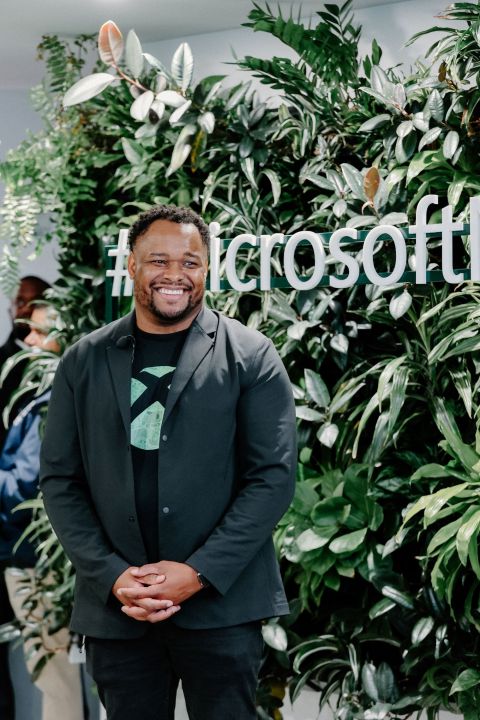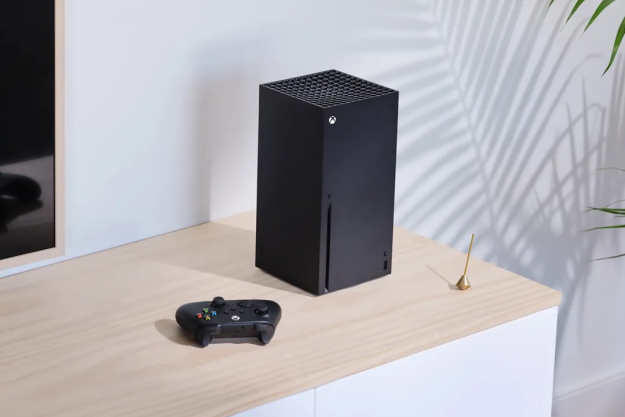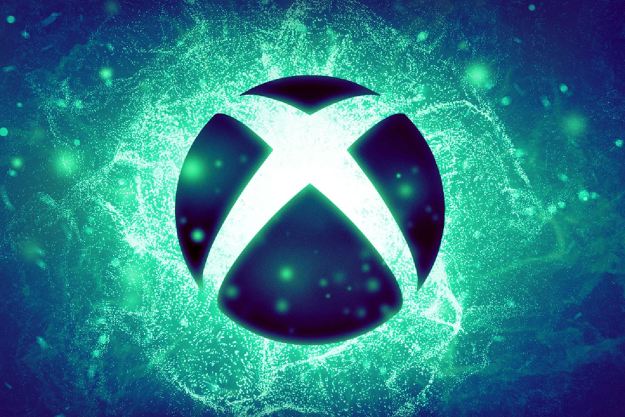Xbox may be about as corporate a brand as you can find, but it’s been a surprisingly vital platform for independent developers. That dates back to the Xbox Live Arcade days of old, when small developers were given a place to easily publish their projects on consoles. Rather than pulling away from those days, Xbox has only doubled down on its relationship to indies in the years since through initiatives like ID@Xbox and a Developer Acceleration Program designed to help underrepresented developers get their games out.
Over the past few months, the brand has been on a global tour to reach small developers directly and court them to Xbox. That effort would take the company to New York City on November 18, where Xbox leadership would speak to local developers and students about how to submit to their programs (the event would also feature a questionably timed speech from New York City Mayor Eric Adams amid an FBI investigation into his campaign funds). It’s clear that Microsoft is investing a lot of time and money into signing deals with small developers, but why make the effort when it could comfortably thrive just by publishing major titles through acquired publishers like Activision Blizzard and Bethesda?
To answer that question, I sat down with James Lewis, head of the ID@Xbox Developer Acceleration Program, at the event. Throughout our conversation about Xbox’s history with indies and the independent scene at large, Lewis emphasized the importance of supporting small developers. It isn’t just about making money, but creating a more sustainable future for studios that need that first shot to prove what they’d be capable of with more resources.
“In my mind, we need to always be aware of who are the most vulnerable out there and are we doing the work that we can to ensure that they have opportunities for success as well,” Lewis tells Digital Trends.
Supporting innovation
If you’ve paid close attention to the Xbox brand over the past decade, you’ll have noticed that indie games have become more central to the company’s mission. While lots of attention goes toward major games like Starfield, Xbox routinely uses indies to fill in the gaps between major releases, keeping Game Pass stocked with a steady supply of new releases. That’s made possible by ID@Xbox, which launched in 2014. The program is designed to help smaller developers publish their titles on Xbox by providing tools and support to help reduce friction. For Lewis, that’s an important task when it comes to moving the industry forward.
“To me, independent developers represent innovation in the industry,” Lewis says. “There’s tech innovation and things like that, but then there’s also innovation in representation and storytelling. And I feel like I’ve seen a lot of our independent developers be able to take risks to tell stories you haven’t seen before … I can see some other teams not wanting to try that story, but independent developers are telling the stories that matter to them and reaching more gamers.”

ID@Xbox has been a major piece of Xbox’s strategy for nearly a decade now. The banner has shipped over 3,000 games from around 5,000 partners at present. While that’s impressive, Lewis and the team still felt like there was more work to do to push Xbox’s missions further. The company would have to put its money where its mouth was when it came to diversity.
“Back in 2019, we asked how we could make sure underrepresented developers also could feel empowered to bring their games to the platform,” Lewis says. “There’s this mantra that we go by that if you don’t intentionally include, you will unintentionally exclude. So, how can we be very intentional in making sure underrepresented developers knew about Xbox, had opportunities to bring their games to Xbox, and that we were helping them?”
That mentality gave birth to Xbox’s latest initiative: the Developer Acceleration Program. Announced at this year’s Game Developers Conference, the program extends the mission of ID@Xbox by offering support to underrepresented developers. While still new, it’s already helped provide funding to smaller titles like this year’s hit El Paso, Elsewhere.
This is their first game; what happens with their second and third?
The Xbox Discovery Day event in New York City was largely built around giving that initiative more visibility. Lewis, along with other members of the Xbox team, gave developers and students on hand a deep look into how the program works and who qualifies for it. It almost felt like a recruiting event, with Xbox trying to scout new creators. Though finding the next great game maker is only one step in the process; actually getting their game made is an entirely different challenge.
“We’re not just helping developers port their games to Xbox, but helping teams get their ideas off the ground,” Lewis says. “So, that’s why it’s so important for us to pilot this prototype initiative where we’re directly supporting studios. That’s the next step. Once we help teams become more sustainable and build prototypes, I think that puts us on a path for studios to, five years from now, build their best game yet.”
Planning for the future
During my conversation with Lewis, it becomes clear that both ID@Xbox and the Developer Acceleration Program are forward-thinking initiatives. The games that come through them aren’t always the most polished, buzzworthy titles — and they’re not always supposed to be. For Lewis, programs like this are about building to a longer-term success for both the developer and Xbox.

“When I think about a lot of the games coming through our program, I’m looking to that future,” Lewis says. “This is their first game; what happens with their second and third? Those are the games where maybe they’re going to first-party publishing at that point because they’ve reached a level of success. But we don’t get to that point if we don’t start it here when they’re at game one and trying to find their path onto the console.”
During the Discover Day event, Xbox doubled down on the idea that it wants to provide the right tools to make that happen. Curiously, Lewis quickly referenced AI during one of his talks as a way Xbox is helping indie devs. That mention came shortly after Microsoft announced it was partnering with Inworld AI to create new tools for its studios that could assist with dialogue and narrative. The announcement was met with mixed feelings, especially from the same indie developers Xbox aims to support. Immortality director Sam Barlow would poke fun at the announcement, giving a list of things that would actually empower him as a creator, including “better discoverability” and “free health care.”
When I asked Lewis about the resistance from indie developers, he was careful not to get too specific about how Xbox plans to use AI. Instead, he said the goal of tools like that is to give developers more “options” when it comes to creating their games.
“We’re trying to do our best to provide options to our developers,” Lewis says. “Anything that we can do to make the process development easier is what we’re looking to do. A lot of this is ‘Hey, here are some options.’ And some options may be better for some teams than others, but we want to make sure we’re providing ones that can ease the process as much as we can.”
While that move could create friction within its community, it’s consistent with Xbox’s current goal when it comes to indies. The keyword for Lewis is growth. That’s reflected in a few different facets of the business. There’s financial growth, but there’s also the growing expectations from Xbox players who want more games and a greater variety of them. Investing in indies helps Xbox accomplish those goals “This is not something we can do by ourselves,” Lewis says.
Being seen is the most important thing.
But what’s more important is how games coming through ID@Xbox and the Developer Acceleration Program can help the wider industry grow. When discussing what success looks like for these initiatives, Lewis doesn’t mention sales or Game Pass subscriptions. Instead, he focuses on the more human goals of the creators that have come through the programs.
“The ways that we can support our teams to continue to grow as we grow is important,” Lewis says. “Sometimes we talk to some developers who come through the program and we ask how they measure success. Sometimes they say ‘we want more awareness and empathy for the current thing we’re talking about in our game.’ For them, being seen is the most important thing. For that to be their leading answer tells me something about why they’re doing this.”
It’s those goals that underline the importance of indie development and why Xbox is eager to support it. Big-budget releases like Starfield will always be the games that get Xbox consoles into homes, but the idealistic hope is that players naturally gravitate toward those more meaningful, personal experiences once they’re in Microsoft’s ecosystem. It’s a long shot, but perhaps one day we’ll see a world where a game like Venba is as important to Xbox players as Halo.
Editors' Recommendations
- One of the year’s biggest sleeper hits is now on Xbox Game Pass
- Microsoft is making AI game-writing tools for Xbox with Inworld AI
- Don’t ignore Spider-Man 2’s side missions. They’re the best parts of the game
- Xbox’s 2023 games feel like the Series X launch lineup we never got
- Cuphead is getting a free Xbox and Windows exclusive anniversary update




